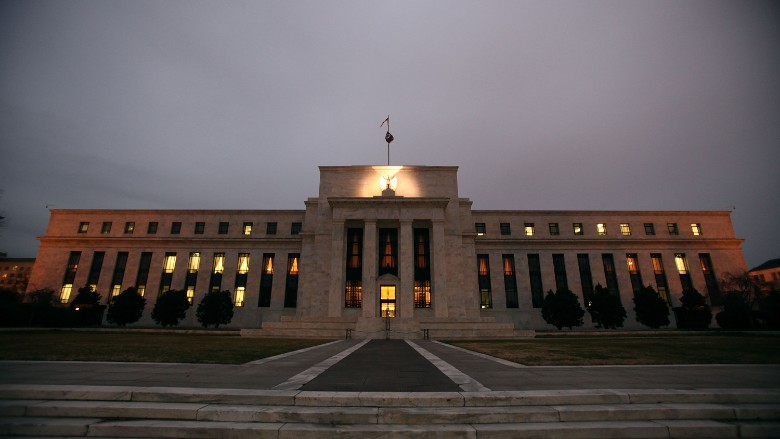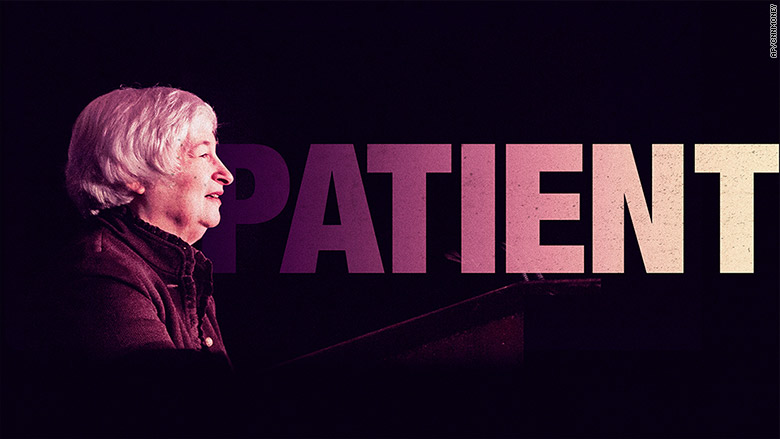
The Federal Reserve's liftoff party looks like it's probably not coming until September or later this year.
America's economic growth was sluggish at the beginning of 2015, according to the Fed committee's statement released Wednesday.
"Economic growth slowed during the winter months," the committee, led by Fed Chair Janet Yellen, said in its statement.
The Fed hasn't raised rates since 2006, and the economy's disappointing developments could push the next rate hike back till September (though the Fed won't say). The question is whether the economy's slowdown is temporary or more permanent factors are pushing it down.
Related: Pimco hires Ben Bernanke as adviser
In March, the Fed's committee finally removed the word "patient" from its statement, which many believed meant that the Fed could raise rates as early as June. Then, after a bad jobs report in March and lackluster economic growth, June now likely appears off the table. A consensus of economists and experts believe September is the most likely time for a rate hike.
The delayed rate hike is a sign of how badly the economy got hit by the cold winter weather, strong U.S. dollar and slower hiring in 2015. One silver lining is that 2015 could be a repeat of last year: slow growth in the winter, followed by a big comeback the rest of the year.

Related: U.S. economy cools in first quarter
"The Committee continues to expect that...economic activity will expand at a moderate pace," the Fed committee's statement read.
Raising rates is important for several reasons. It would be the central bank's two thumbs up on the health of America's economy. The Fed put interest rates at zero in December 2008 during the recession to help reboot the housing market and spur growth. The Fed achieved both those goals, and a rate hike now would be like taking the training wheels off the economy.
A rate hike would also bring up interest rates on credit card debt, car loans, private student loans and many other things. It would let people earn interest on money in their savings accounts too.
There's concern that a Fed rate hike would disrupt the 6-year bull market the stock market has enjoyed. The S&P 500 has gained over 200% since 2009, allowing even the most cautious investors to make stellar profits. Stocks have already been volatile this year, and they tend to not perform well after a Fed rate hike.


